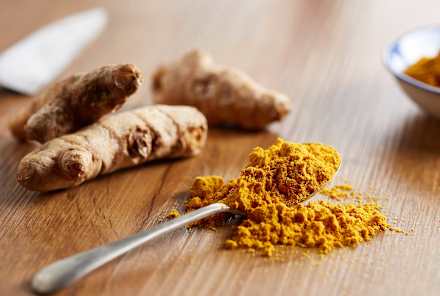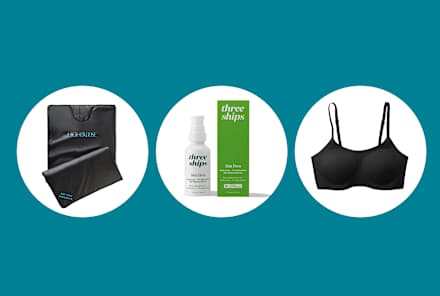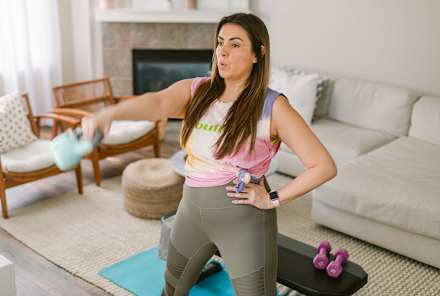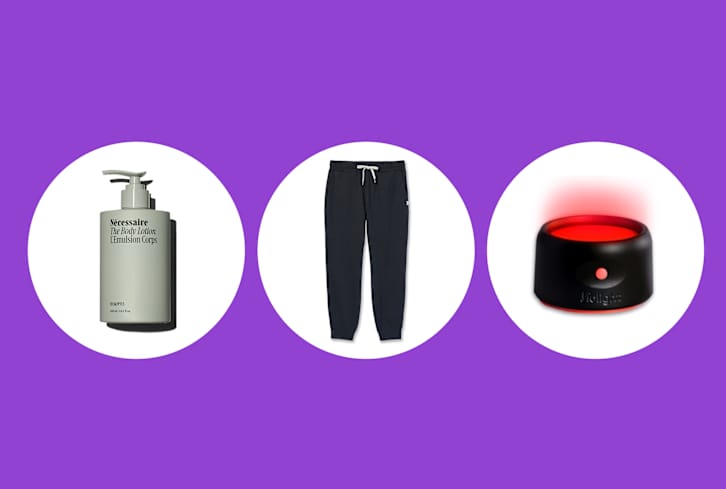Advertisement
Omega-3s Are The Missing Ingredient Of Your Anti-Inflammatory Skin Care Routine


Whenever we have red, itchy, dry, or inflamed skin, we often reach for various cleansers, lotions, serums, and other concoctions to help calm things down. While these topicals can be very effective (here's what we recommend to get rid of redness on the face at home), certain nutrients you consume also protect the skin.
One nutrient that 90% of Americans1 aren't getting enough of daily is omega-3s. These fatty acids are most known for their role in heart health, but their anti-inflammatory effects extend to the skin as well.
If you want to add even more skin-loving steps to your routine, here's why it should be more omega-3s.
Reduced redness & inflammation
Everything from pollution to sleeping poorly, alcohol intake, smoking, and gut microbiome imbalances can lead to skin inflammation.
Omega-3s, especially EPA (a type of omega-3 found in fish oil), help reduce the production of inflammatory molecules like prostaglandins and cytokines.
In fact, one comprehensive review of 38 studies found that omega-3 supplements 2can calm irritated skin and reduce redness and swelling in inflammatory skin conditions like psoriasis, eczema, and acne.
Enhanced skin barrier function
The skin barrier is the protective, outermost part of the skin. Maintaining a healthy skin barrier is of vital importance when it comes to achieving hydrated, plump, and even-toned skin.
Being deficient in essential fatty acids (like omega-3s) leads to dry, peeling, and flabby skin that gets easily irritated.
Omega-3 fats appear to strengthen skin barrier function, protecting the skin from irritants, sealing in moisture, and smoothing uneven texture.
One study found that participants with psoriasis who combined omega-3 supplements with topicals3 had improved overall skin health and appearance compared to those who only used the topical treatment.
Protection from UV rays
Overexposure to the sun's UV rays is damaging to the skin and leads to inflammation and premature aging.
Research shows that omega-s can help resolve this sun-related inflammation in addition to protecting against UV-related skin issues like a weakened immune response and sensitivity to sunlight.
How to get more omega-3s
You can increase your omega-3 intake from both foods and supplements. Choose foods like fatty fish (salmon, mackerel, anchovies, and sardines), flaxseeds, chia seeds, and walnuts to add to your weekly—even daily—menu.
Supplements are an easy way to get a therapeutic amount of omega-3s daily (without eating an entire fish).
A therapeutic dose (that produces the benefits like the ones we just listed) typically ranges from 1,000 to 4,000 milligrams of combined EPA and DHA.
Here's our detailed list of the best omega-3 supplements.
The takeaway
If you want to improve the tone, texture, and appearance of your skin, then getting more omega-3s (through food or supplements) should be a no-brainer. Not to mention, these essential fats also support healthy blood pressure, cholesterol, vision, memory, and mental well-being. It's a win all around.
Watch Next
Enjoy some of our favorite clips from classes
Enjoy some of our favorite clips from classes
What Is Meditation?
Mindfulness/Spirituality | Light Watkins
Box Breathing
Mindfulness/Spirituality | Gwen Dittmar
What Breathwork Can Address
Mindfulness/Spirituality | Gwen Dittmar
The 8 Limbs of Yoga - What is Asana?
Yoga | Caley Alyssa
Two Standing Postures to Open Up Tight Hips
Yoga | Caley Alyssa
How Plants Can Optimize Athletic Performance
Nutrition | Rich Roll
What to Eat Before a Workout
Nutrition | Rich Roll
How Ayurveda Helps Us Navigate Modern Life
Nutrition | Sahara Rose
Messages About Love & Relationships
Love & Relationships | Esther Perel
Love Languages
Love & Relationships | Esther Perel
What Is Meditation?
Box Breathing
What Breathwork Can Address
The 8 Limbs of Yoga - What is Asana?
Two Standing Postures to Open Up Tight Hips
How Plants Can Optimize Athletic Performance
What to Eat Before a Workout
How Ayurveda Helps Us Navigate Modern Life
Messages About Love & Relationships
Love Languages
Advertisement

Resting Heart Rate Is A Good Predictor Of Longevity—Here's How To Lower It
Molly Knudsen, M.S., RDN

Analysis Of 99 Studies Shows This Vitamin Improves Blood Pressure & Insulin
Molly Knudsen, M.S., RDN

Inflammation, Memory & Muscle Health — Study Shows This Spice Can Help It All
Molly Knudsen, M.S., RDN

3 Ways Heart Disease & Cognitive Decline Are Linked (Plus How To Improve Both)
Molly Knudsen, M.S., RDN

Resting Heart Rate Is A Good Predictor Of Longevity—Here's How To Lower It
Molly Knudsen, M.S., RDN

Analysis Of 99 Studies Shows This Vitamin Improves Blood Pressure & Insulin
Molly Knudsen, M.S., RDN

Inflammation, Memory & Muscle Health — Study Shows This Spice Can Help It All
Molly Knudsen, M.S., RDN

3 Ways Heart Disease & Cognitive Decline Are Linked (Plus How To Improve Both)
Molly Knudsen, M.S., RDN

Resting Heart Rate Is A Good Predictor Of Longevity—Here's How To Lower It
Molly Knudsen, M.S., RDN

Analysis Of 99 Studies Shows This Vitamin Improves Blood Pressure & Insulin
Molly Knudsen, M.S., RDN

Inflammation, Memory & Muscle Health — Study Shows This Spice Can Help It All
Molly Knudsen, M.S., RDN

3 Ways Heart Disease & Cognitive Decline Are Linked (Plus How To Improve Both)
Molly Knudsen, M.S., RDN

Resting Heart Rate Is A Good Predictor Of Longevity—Here's How To Lower It
Molly Knudsen, M.S., RDN

Analysis Of 99 Studies Shows This Vitamin Improves Blood Pressure & Insulin
Molly Knudsen, M.S., RDN

Inflammation, Memory & Muscle Health — Study Shows This Spice Can Help It All
Molly Knudsen, M.S., RDN

3 Ways Heart Disease & Cognitive Decline Are Linked (Plus How To Improve Both)
Molly Knudsen, M.S., RDN











